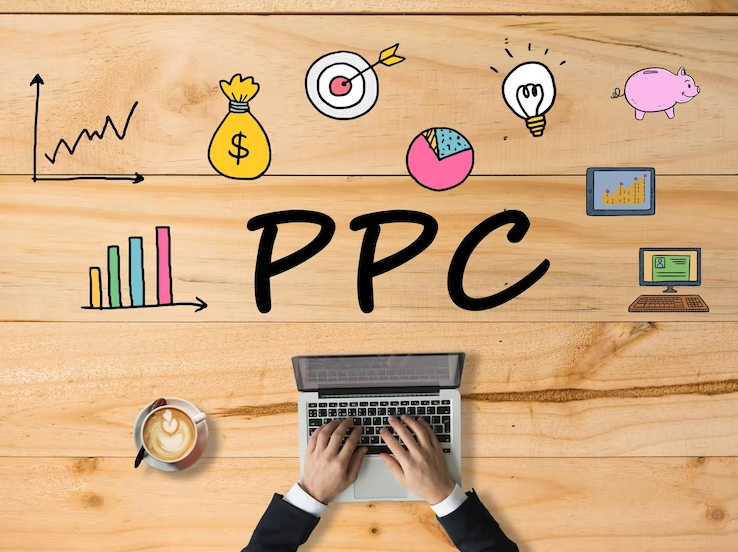How to Improve PPC Performance – A Comprehensive Guide to Optimization
In the competitive landscape of online advertising, Pay-Per-Click (PPC) campaigns have emerged as a powerful tool for businesses to enhance their digital visibility and drive targeted traffic. However, merely running PPC campaigns is not enough; optimizing their performance is crucial to ensure a high return on investment (ROI). In this comprehensive guide, we will explore various strategies and techniques on how to improve PPC performance and boost the effectiveness of your advertising efforts.
Understanding PPC Performance:
Before delving into optimization strategies, it’s essential to grasp the key components that contribute to PPC performance. PPC campaigns operate on a bidding model, where advertisers bid on specific keywords relevant to their target audience. The performance of a PPC campaign is measured by various metrics, including:
- Click-Through Rate (CTR): The percentage of people who click on your ad after seeing it.
- Conversion Rate: The percentage of clicks that result in a desired action, such as a purchase or sign-up.
- Cost Per Click (CPC): The amount paid for each click on your ad.
- Quality Score: A metric that assesses the relevance and quality of your keywords, ad copy, and landing page.

How to Improve PPC Performance:
Conduct Thorough Keyword Research:
Start by identifying and selecting relevant keywords that align with your business objectives. Utilize tools like Google Keyword Planner to discover high-performing keywords and long-tail variations. Regularly update your keyword list to stay relevant to evolving trends and user behavior.
Create Compelling Ad Copy:
Craft attention-grabbing and relevant ad copy that entices users to click. Highlight unique selling propositions, promotions, or special offers. A/B tests different ad variations to determine which resonates most with your target audience.
Landing Page Optimization:
Ensure that the landing page your ads direct users to is optimized for conversions. The landing page should have a clear call-to-action (CTA), align with the ad’s messaging, and provide a seamless user experience. Test different layouts and elements to find the most effective combination.
Utilize Ad Extensions:
Take advantage of ad extensions to provide additional information and encourage user engagement. Extensions can include site links, callouts, and structured snippets. These extensions not only enhance your ad’s visibility but also offer more value to users.
Optimize Bids and Budget:
Regularly review and adjust your bidding strategy to ensure you are allocating budget efficiently. Focus on keywords that drive conversions and adjust bids based on performance. Consider experimenting with bid strategies such as target CPA (Cost Per Acquisition) or target ROAS (Return On Ad Spend).
Implement Geographic and Device Targeting:
Refine your targeting options by narrowing down the geographic locations and devices where your ads appear. Tailor your messaging and bids based on the preferences and behaviors of users in specific locations or on particular devices.
Regularly Monitor and Analyze Performance:
Set up tracking and analytics tools to monitor the performance of your PPC campaigns. Analyze data regularly to identify trends, uncover areas for improvement, and make data-driven decisions. Pay attention to high-performing keywords, ad variations, and demographics.
Adopt Remarketing Strategies:
Implement remarketing campaigns to target users who have previously interacted with your website. Tailor your ads to re-engage these users, reminding them of your products or services. Remarketing can be a powerful tool for increasing conversion rates.

Test and Iterate:
Successful PPC optimization involves continuous testing and iteration. Experiment with different strategies, such as ad schedules, audience targeting, and ad formats. Analyze the results of your tests and apply the insights gained to refine and enhance your campaigns.
Stay Informed about Industry Trends:
The digital advertising landscape is dynamic, with constant changes and updates. Stay informed about industry trends, algorithm updates, and new features introduced by advertising platforms. Adapting to emerging trends can give your campaigns a competitive edge.
Frequently Asked Questions (FAQs):
Q1: How often should I review and update my PPC campaigns?
A: Regular monitoring is crucial for PPC success. Perform weekly reviews to check for performance anomalies, and conduct more in-depth analyses every month. Regular updates help ensure your campaigns remain aligned with your goals and budget.
Q2: What is the significance of Quality Score in PPC?
A: Quality Score is a metric used by search engines to assess the relevance and quality of your keywords, ad copy, and landing page. A higher Quality Score can lead to better ad placements and lower CPC.
Q3: Are there any tools to help with PPC optimization?
A: Yes, several tools can assist with PPC optimization. Google Ads provides tools like Keyword Planner and Ad Preview. Additionally, third-party tools like SEMrush and Ahrefs offer comprehensive features for PPC analysis and optimization.
Q: How can I improve my PPC campaign’s conversion rate?
A4: To improve conversion rates, focus on optimizing your landing pages, ensuring a clear CTA, and aligning your ad copy with user expectations. Experiment with different incentives, such as promotions or limited-time offers.
Q5: What is the role of A/B testing in PPC optimization?
A: A/B testing involves comparing two or more variations of an element, such as ad copy or landing page, to determine which performs better. A/B testing allows you to make data-driven decisions and continuously improve the effectiveness of your campaigns.
Q6: Should I focus on organic or paid search?
A: Both organic and paid search play essential roles in a comprehensive digital marketing strategy. Paid search can provide immediate visibility, while organic search builds long-term credibility. Balancing both approaches can yield optimal results.
Q7: Can PPC campaigns be optimized for mobile users?
A: Absolutely. With the increasing use of mobile devices, optimizing PPC campaigns for mobile users is essential. Ensure that your ads are mobile-friendly, and consider implementing mobile-specific ad copy and targeting.
Q8: How can remarketing benefit my PPC campaigns?
A: Remarketing allows you to target users who have previously interacted with your website. It can increase brand recall, encourage repeat visits, and improve conversion rates by re-engaging users who are already familiar with your products or services.
Conclusion:
Mastering the art of PPC optimization is an ongoing process that requires a combination of strategic planning, data analysis, and continuous refinement. By implementing the techniques and strategies outlined in this guide, you can enhance the performance of your PPC campaigns, maximize your ROI, and stay ahead in the dynamic landscape of digital advertising. Remember to stay informed about industry trends, adapt to changes, and embrace a mindset of continuous improvement to succeed in the competitive world of online advertising.

